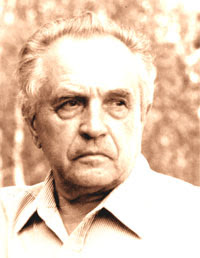Posted on 11/03/2009. Tags: European, EU
Author: Stanislav Maselnik
Denis de Rougemont was a main thinker of the so-called non-conformistes des années trente, a movement of young intellectuals that appeared in France at the morrow of the turbulent 1930s, in opposition to both individualism represented by liberalism and rising collectivism. [1] The main bulk of their work was published between 1930-34 and was concentrated around three separate currents.
Continue Reading
Posted in English
Posted on 08/02/2009. Tags: Bushido, Arnold J. Toynbee
 The Laws of the Military Houses
The Laws of the Military Houses
In the Roman Empire and other universal states in the days of their decline, attempts were made to arrest the course of deterioration by “freezing” an existing legal or social situation. The Tokugawa Shogunate in Japan was perhaps unique among universal states in applying this prescription of “freezing” from first to last and in achieving the tour de force of arresting change in the outward forms of social life (though not, of course, in the inward realities) over a span of more than 250 years.
Continue Reading
Posted in Historie, English
Posted on 17/07/2008. Tags: Rusko, Alexandr Zinověv, Robert Steuckers
 We all remember the great Soviet dissident Alexander Zinoviev, a lucid analyst not only of all the odds of the Soviet regime but also and especially of all the odds of the human soul, which lead unequivocally to all those forms of rigid totalitarianism. Today Zinoviev criticizes ”Westernikism” with an equal vigor as he criticized Soviet power before. “Westernikism” is in his eyes an American version of a Gleichschaltung of the human soul, which is equally mutilating as the former Soviet version. Because he formulated his sharp critiques under Breshnev’s Soviet Union, he was deprived of his Soviet citizenship in the Seventies. Zinoviev was compelled to live a long exile abroad, in Munich in Bavaria, a City which gave a safe harbour to many more Russian emigrations.
We all remember the great Soviet dissident Alexander Zinoviev, a lucid analyst not only of all the odds of the Soviet regime but also and especially of all the odds of the human soul, which lead unequivocally to all those forms of rigid totalitarianism. Today Zinoviev criticizes ”Westernikism” with an equal vigor as he criticized Soviet power before. “Westernikism” is in his eyes an American version of a Gleichschaltung of the human soul, which is equally mutilating as the former Soviet version. Because he formulated his sharp critiques under Breshnev’s Soviet Union, he was deprived of his Soviet citizenship in the Seventies. Zinoviev was compelled to live a long exile abroad, in Munich in Bavaria, a City which gave a safe harbour to many more Russian emigrations.
Continue Reading
Posted in Rozhovory, English
 The Laws of the Military Houses
The Laws of the Military Houses
 ***
*** ***
***
Nejnovější komentáře